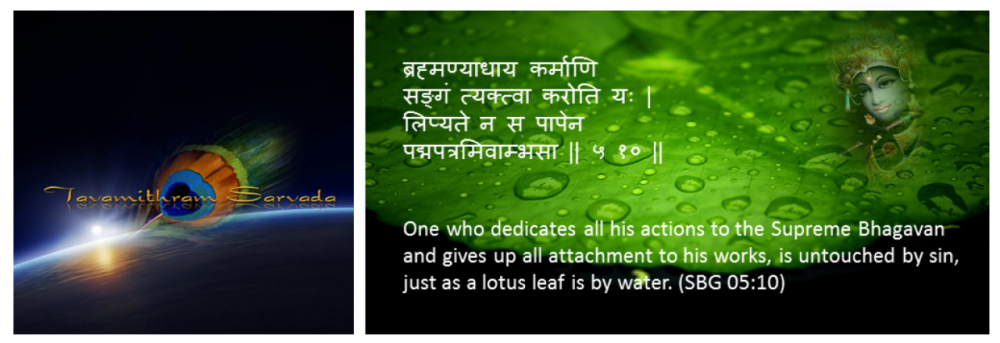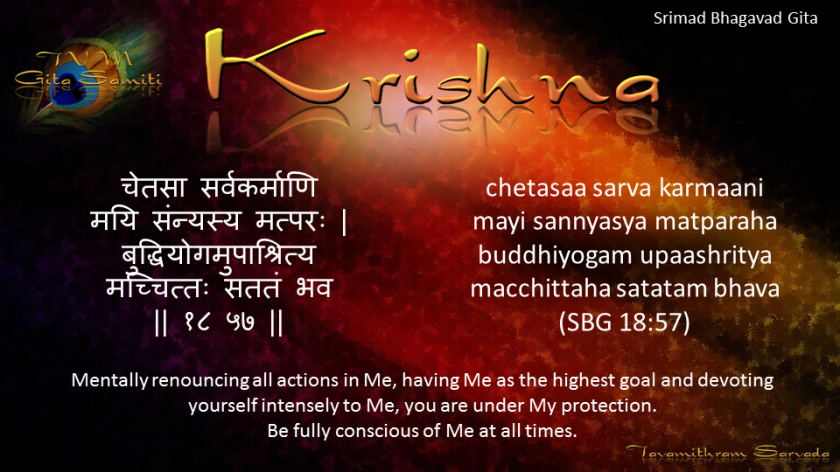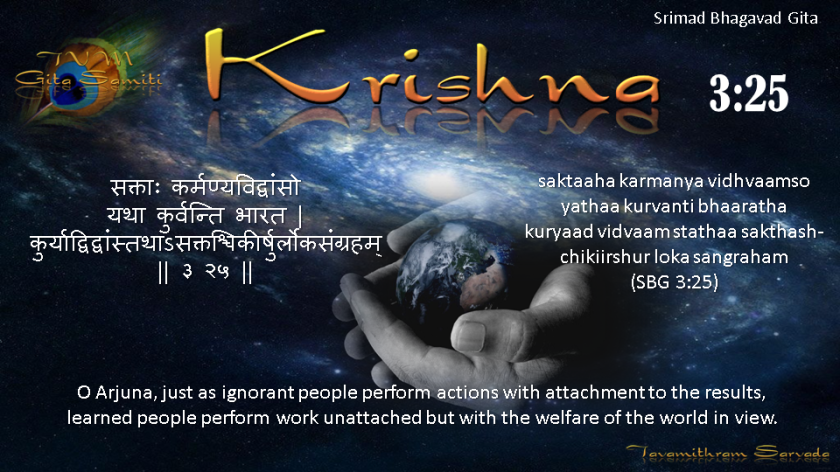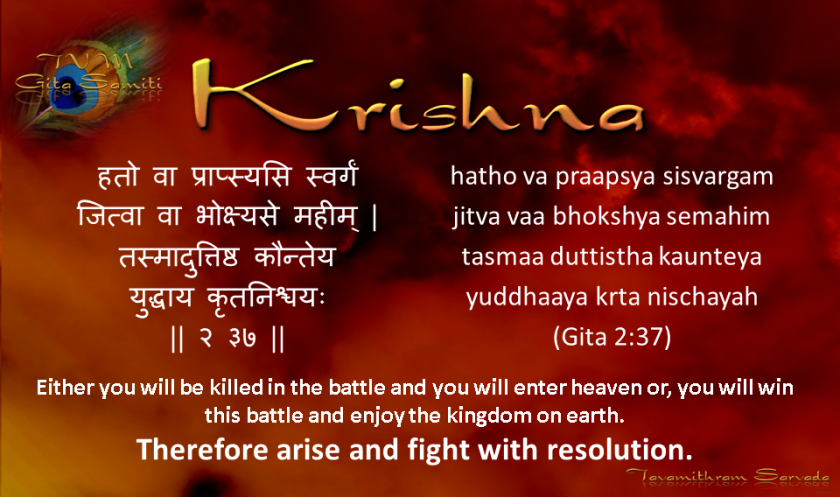“Poor me.”
“I am bitter and angry with the world.”
“The world is such a mean place to live in.”
“The stars are out to destroy me.”
“I am a victim of society.”
The above are statements that are uttered usually by people who use a ‘drug’ called self-pity.
That’s right. Self-pity is indeed like a drug. It is so easy to take the help of this ‘drug’. It usually starts with the seemingly harmless but frequent use of the word ‘because’ in whatever people say.
Sentences like:
“I am able to complete my work because….”
“I can’t do that because….”
“I can’t come out of my sadness because…”
“I am afraid because….”
The very source of such an attitude is a major fault in a person’s basic perception and understanding of reality, which is usually planted in their minds by society, media, the education system, elders, peers, and the so-called ‘religious people.’ What worsens this fault is the wrong understanding of the ‘God concept’ by people of the Vedic Dharma. It is quite understandable that people following organised religions have no choice in the matter because if they wished to be part of their respective organised religions or cults, they would have to believe in one or more theistic central figures of that religion, book or certain religious people. However, that is not the case with the Vedic Sanatana Dharma. One does not have to believe in anything or anyone. All one needs to do is to be a modest and avid seeker.
At the end of the Srimad Bhagavad Gita, in Shloka 18:63, Krishna does not ask Arjuna to obey him but to take whatever he wished from Krishna’s teachings and to do what he would wish to do.
While Vedanta is the highest stage of philosophical studies through the Upanishads, most people, due to plain ignorance or laziness, prefer to stay back at much lower levels of spiritual evolution. They do so rather than observing the world around them, learning from it, asking questions, debating, studying, researching, and taking responsibility.
The idea of an external or separate ‘god’ or ‘gods’ is taught at much lower levels of one’s path towards attaining spiritual evolution. Its purpose is to overcome the veil of ignorance of one’s own Divinity that one’s mind creates using the abstract phenomenon called ‘false ego’, and to evolve to the stage in which one is capable of perceiving their own Divinity.
Instead of devoutly completing the various stages of the Vedas and arriving at Vedanta, which is the final goal, people prefer to take metaphors in a literal sense, hold on to them, attribute all troubles and challenges in their life to something or someone else outside their person, and further develop their habit of using the ‘drug’ of self-pity.
Whether you have read the Srimad Bhagavad Gita or not, you might want to read the following Shloka and use it as an important driving force in your life:
SBG 2:37 Either you will be killed in the battle, and you will attain the celestial abodes or, you will win this battle and enjoy the kingdom on earth. Therefore, arise and fight with resolution.
Do not forget that you have nothing to lose because you anyway own nothing. You are merely a voyager through time. It would be most useful to learn to live and, one day, exit happily.
It is you and no one else who is the creator of your destiny. Taking Responsibility is not only empowering, but it also removes all traces of a person’s self-destructive habit of throwing the blame on external factors.
In Shloka SBG 4:40 Krishna says: The ignorant, the faithless and those who doubt themselves proceed to destruction. For the one who doubts, there is happiness neither in this world nor in the other.
Remember, that there is no one, no gods, no planets, or nothing that are causing challenges in your life. If you want your life to change – YOU CHANGE.
Whatever challenges you might have faced or are still facing, are only making you stronger, wiser and more complete.
You are the master of your fate.


Very true. By blaming situation will temporarily make you feel better soul as seen by others but will miss genuine opportunity to change
LikeLike
Dear sir,
हतो वा प्राप्स्यसि स्वर्गं जित्वा वा भोक्ष्यसे महीम् |
तस्मादुत्तिष्ठ कौन्तेय युद्धाय कृतनिश्चय: || 37||
I have lived what you have written (understanding dharma incorrectly, being fearful and so on).
„Taking responsibility“ is the biggest thing I learnt in my sade-sati. I am teaching same concepts to my kids as well.
Idea of we owe something from someone, or doing some ritual do gain something, or someone should come and rescue me is today’s definition of dharma. People may know karma but does not know how it works.
Thank you for your persistent effort to spread wisdom.
Regards,
Yogi
LikeLiked by 1 person
Hello Yogi,
It’s always good to hear from you. Thank you for sharing your thoughts.
Taking responsibility is empowering simply because you are conscious that you are at the wheel and that you are all powerful with no one or nothing you could cling to, or throw the blame on.
Below is a prime reason why it is so extremely essential to learn and practise KarmaYoga:
When one performs Nishkaama Karma as a Yagnya (sacrifice) (Go through SBG 3:19, 20, 30) does not think of benefits, stays on the side of honesty and morality, and has the welfare of the world in mind (3:20, 25, 5:25); it is quite natural that the entire system personified as Krishna will protect them. (SBG 18:57)

Whatever you do, do it with the welfare of the world in mind – SOCIAL RESPONSIBILITY.

The outcome of work performed by a true, sincere and dedicated KarmaYogi can only be binary in nature as said in SBG 2:37

You may make use of my SBG site to study or refer to the Shlokas https://bit.ly/tvmgita
Stay blessed.
Jai Shri Krishna
LikeLike